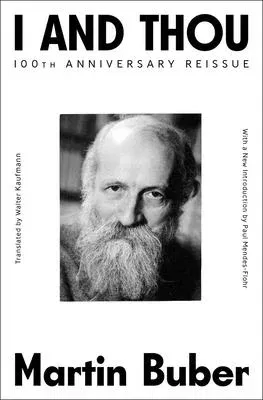100 years after its original publication, Martin Buber's landmark work
of philosophy and theology I and Thou remains one of the most
important books of Western thought and a seminal work of 20th-century
intellectual history.
Considered to be one of the most influential books of Western thought
since its original publication in 1923, Martin Buber's slender volume I
and Thou influenced the way we think about our relationships with one
another and with God. Buber unites currents of modern German philosophy
with the Judeo-Christian tradition, powerfully updating faith for modern
times.
I and Thou is Martin Buber's pioneering work and the centerpiece of
his groundbreaking philosophy. In it, Buber--one of the greatest Jewish
minds of the 20th century--lays out a view of the world in which human
beings can enter into relationships that enhance their mutual
existential dignity (I-Thou relations). These "dialogical" relations
contrast with those that tend to prevail in modern society, namely the
treatment of others as objects to advance personal and collective
interests (I-It relations). Buber demonstrates how I-Thou interhuman
meetings reflect and embody the human meeting with God. For Buber, the
essence of biblical religion affirms the possibility of a dialogue
between man and God.

